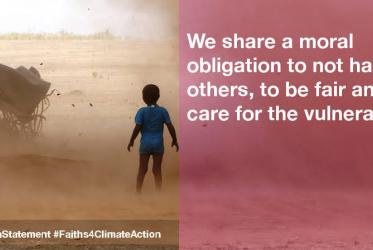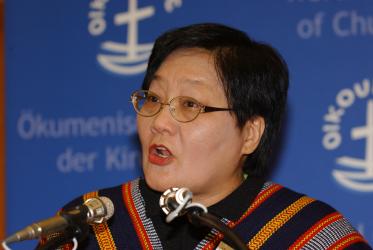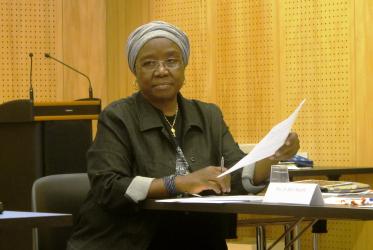Displaying 81 - 100 of 139
04 November 2016
A just financial and economic architecture is possible, students find
08 September 2016
Interfaith workshop calls for justice and compassion in finance
03 December 2015
Youth and church activists highlight peace pedagogy
28 August 2015
WCC member churches commit to climate justice at COP 20
10 December 2014
Senturias named to human rights board in the Philippines
18 February 2014
Ecumenical panel promotes economic justice
17 January 2014





